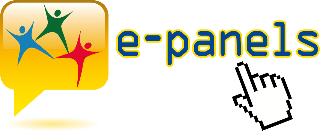
Closing the gap between citizens and the European Union is possible, provided that the institutions are really open and willing to support the citizens’ desire for active participation.
The citizens’ desire to participate is keen, paradoxically even keener in countries where the democratic process is not well accomplished yet, and new technologies can represent a further tool to exercise one’s own democratic rights. This is what the E-Panels project proves, a project that ALDA, the Association of Local Democracy Agencies, is leading with the aim to encourage civic participation through the use of Information and Communication Technologies (ICTs).
The partners of the project – ALDA, LDA Sisak, LDA Osijek, Maison de l’Europe de Caen, Association of European Partnership, Fundacion Insula Barataria, Ngo Horizont and CRPRC Studorium – will meet in Croatia at the beginning of next month for the closing conference of the project that will be held in Zagreb on November 3rd. In view of that, a website was created in spring 2010, which was managed and promoted on the national level by ALDA partners from Croatia, France, Spain, Albania, Macedonia and Bulgaria.
After several months of online exchanges with anonymous citizens about current European issues, it is now possible to draw lessons and experiences from these citizens’ thoughts and opinions, in order to involve them in the building process.
Presentations of the results of the discussions on the e-panels, encounters among the partners and e-panels activators who volunteered to carry out this experience, debates with experts on active citizenship, volunteering and ICT and exchanges of opinions about European identity will be the leading track of this day.
The innovative method proposed by this project is to create electronic panels (“e-panels”) to increase the number of citizens of different ages, nationalities and backgrounds who could finally find an opportunity to express themselves on matters related to EU policies that affect their daily life using these online panels. The purpose is to test this new dimension of the citizens’ panels’ methodology to see if it is a relevant instrument to foster citizens’ participation.
The E-Panels project is meant to develop a sense of European identity, based on common values, history and culture, to give the citizens the opportunity to interact and participate in a wider Europe through debates about how to improve citizens’ participation, with a focus on tools or processes such as ICT tools and the process of volunteering. The objective is not only to foster a sense of belonging and to enhance tolerance and mutual understanding among the European Union’s citizens, but also to strengthen respect and to promote cultural and linguistic diversity, while contributing to the intercultural dialogue.
Through this project 20 people from 6 different countries were trained, acquiring new information, knowledge and skills in the field of active citizenship and contributing, thanks to their “new” role, to the development of citizens’ panels at the local level.
The project has already reached almost a thousand people directly through local and international various activities.
For more information, visit the project website: http://e-panels.eu/


